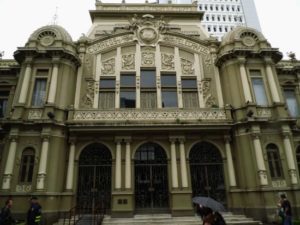
With the lordship that characterizes it, a great of San Jose rejuvenates to assume its 100 years as if the time had not passed through its structure.
It is the historic Post and Telegraph building in Costa Rica, whose façade is being repaired and painted completely before this structure reaches a century of existence in October.
The building, installed since 1917 on street 2, between avenues 1 and 3, is an icon of Costa Rican architecture. In fact, it was declared patrimony on October 14, 1980.
The renovation to receive the centennial consists in the repair of parts of its façade, whose area is 1,950 square meters, as well as the general painting of this, explained Mauricio Rojas, general manager of Correos de Costa Rica.
The works cost ¢ 25 million and began a month and a half ago.
“I have 31 years of working here; almost that I was born in the Post Office of Costa Rica,
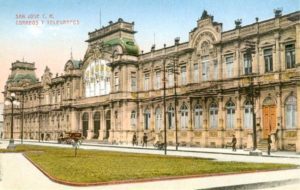
and I have clear that this is one of the few structures of San José that remain intact. As in other countries, this is one of the buildings that became postal palaces, and that’s why we care about its restoration, “added Rojas.
Roy Diaz, architect and chief of the department of engineering of the entity, commented that the building is exposed to external factors like the deterioration caused by the pigeons that are placed on the structure.
Therefore, he added, it was urgent to refresh by what is currently happening. Of course, he clarified, taking the necessary care with such a structure.
“You have to be very tactful with the materials. The Heritage Center (of the Ministry of Culture) has given us a series of indications for working. Some parts were badly damaged, so we had to put on repellent. In the base, that is, in the lower part of the building, a waterproofing is placed, to avoid that it is filled with humidity “, affirmed the architect.
Two re-openings
The celebration of the 100 years of the inauguration of the building will be on October 9, World Post Day.
Although it is known that the building opened its doors in that same month, in 1917, the exact date in which this happened was unknown.
Next, to the centennial celebration, that day will be reopened to the public the traditional coffee of the Mail, as well as the Philatelic Museum (where collections of postage stamps are displayed).
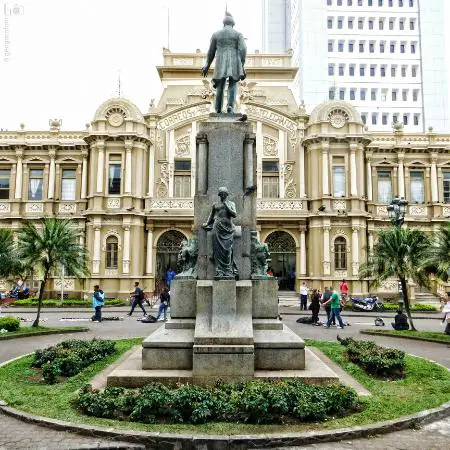
Both enclosures had been closed for about two years, due to a restructuring process.
In the case of the museum, which was previously on the second floor of the building, it will be moved to the first floor, to the northeast corner.
This will show the audience five thematic rooms. One will focus on the area of telecommunications; another, to the seals of the world; a third will be itinerant (it will change topics, but will open with a sample of Japanese stamps); the fourth will highlight the Costa Rican philatelic history, while the last will be dedicated to children, with children’s stamps.
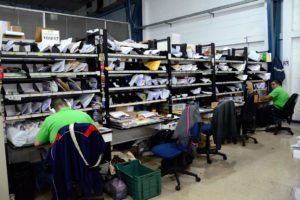
The cafe, for its part, will open the doors in the same place where it was previously and will be right next to the museum.
The process of reinventing the Post Office building in Costa Rica will also bring with it a new alarm and fire detection system.
The work, explained the architect Diaz, is already in the process of adjudication and will be enabled by the end of this 2017. It is an investment of ¢ 25 million.
Jewel of eclecticism
The Post and Telegraph building in Costa Rica is an eclectic, reinforced concrete structure, a trend that blends elements of different styles and eras of the history of art and architecture.
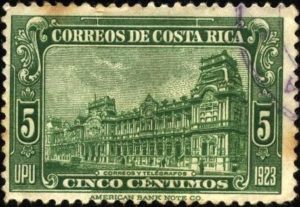
Since it takes a complete block, from north to south, it has a monumental façade and houses a large vestibule in its central body. To the sides, is composed of two wings with offices, each with a central patio.
Although many elements of its exterior, such as the balconies of the wings and the windows of the second floor, are both neoclassical and baroque, its decoration and general symbology with, mostly, modernists. This is argued by the architect Andrés Fernández in his book Pasado Construido, chronicles on Josephine architecture.
A great reinventing
Today, that place that marked the first lines of communication in the country, allowing the sending of telegrams, is still useful for users.
In any branch of the Post Office of Costa Rica of the country can process passports, residence cards and manage certifications of the Public Registry and the Supreme Court of Elections.
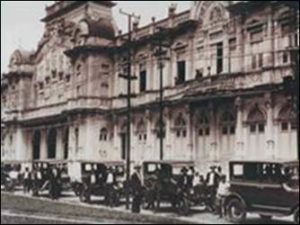
It is also possible to carry out parcels and parcels, both national and international, as well as orders for purchases on the Internet and everything related to electronic commerce.
At present, the historic Post and Telegraph building houses the San José de Correos branch of Costa Rica. The central building is now located in Zapote.
Palace of communication
The country’s progress in communication over a century ago, with correspondence and telegraph services, went a long way in 1917, with the construction of the Post and Telegraph Building in Costa Delicious.
1824: After Independence (1821) and after Costa Rica became part of the Federal Republic of Central America, regional mail was organized.
1847: The postal service had already been consolidated and there was the talk of the need to have a central post office building in San José on which post offices depended on the rest of the country.
1856: The Costa Rican courier only carried two or three pounds of correspondence per month and the construction of the enclosure became urgent.
1869: Telegraph service begins when the Government acquired the San José-Puntarenas line, and the General Directorate of Telegraphs is consolidated.
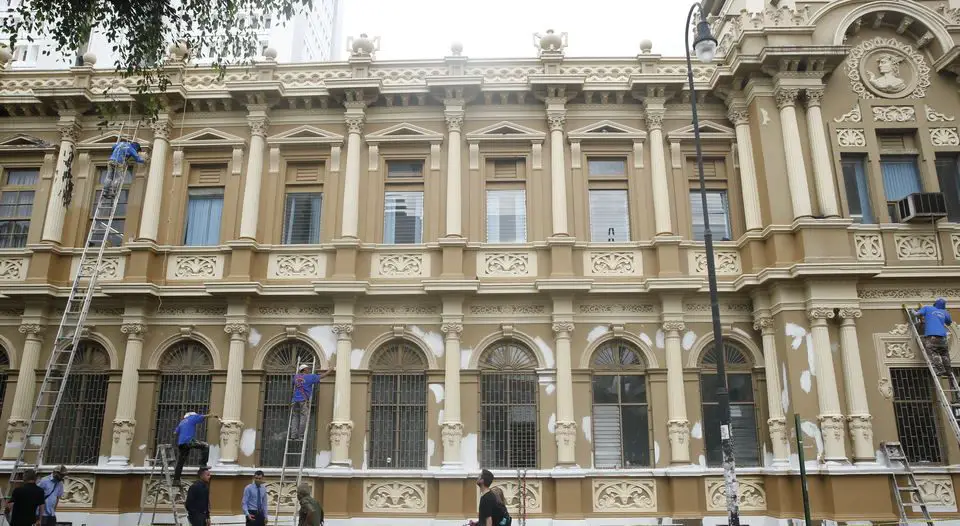
1887: Prior to the completion of the railroad to the Atlantic, the General Postal Regulation was created.
1904: The United Fruit Company installs the wireless telegraphy and, later, puts it to the service of the country.
1910: Just after the earthquake of Carthage, cataloged as the most destructive in the history of the country, began the efforts to build the central post office, which would also house the telegraph.
1914: During the management of President Alfredo González Flores, the building was awarded to The English Construction Company Ltd. The work was left to the engineer and architect of Catalan origin, Luis Llach Llagostera.
1917: Staff occupied the building.
